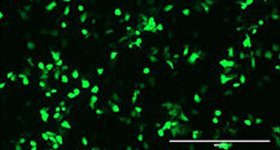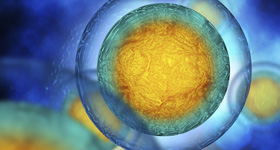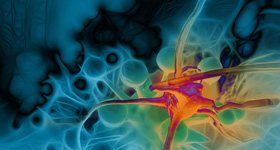Related Research
 Area of Interest: Imaging/Microscopy
Area of Interest: Imaging/Microscopy
Liver cancer is one of the most common cancers worldwide. While the exact molecular mechanisms that are associated with the development of liver cancer are not entirely understood, potential causes include exposure to environmental toxins and drugs, alcohol consumption, and chronic infections of the liver with viruses such as the hepatitis B virus (HBV). The work in my laboratory focuses on studying processes involved in hepatocyte transformation; hepatocytes are the major epithelial cell of the liver. Visit the Bouchard Lab.
 Areas of Interest: Protein Expression and Purification; Crystallography (sample preparation, crystallization)
Areas of Interest: Protein Expression and Purification; Crystallography (sample preparation, crystallization)
Research in my lab revolves around molecular structure. The underlying goal for all our projects is to understand biologically important processes at the molecular level. Our principal tools are biophysical ones, including in particular X-ray crystallography; we also devote much energy to protein expression and protein biochemistry to support the structural efforts. Learn more about Dr. Loll.
 Areas of Interest: Gene Expression and Manipulation; Imaging/Microscopy
Areas of Interest: Gene Expression and Manipulation; Imaging/Microscopy
Breast cancer is the second leading cause of cancer death in women. About 1 in 8 women in the U.S. will develop invasive breast cancer during her lifetime. Our lab is interested in understanding altered signaling pathways that lead to breast cancer initiation and progression. Identifying and understanding these pathways will lead to development of novel therapies. Recently our lab has become interested in understanding how signaling pathways regulate metabolic reprogramming in cancer cells. Visit the Reginato Lab.
 Area of Interest: Gene Expression and Manipulation
Area of Interest: Gene Expression and Manipulation
The work in Dr. Strochlic's lab is broadly centered on understanding certain protein kinase-mediated cell signaling pathways in the context of normal development and tumorigenesis. The lab uses a combination of genetic, biochemical, and cell biological approaches in both Drosophila melanogaster and mammalian cells to investigate the biology of several different protein kinases. Learn more about Dr. Strochlic.